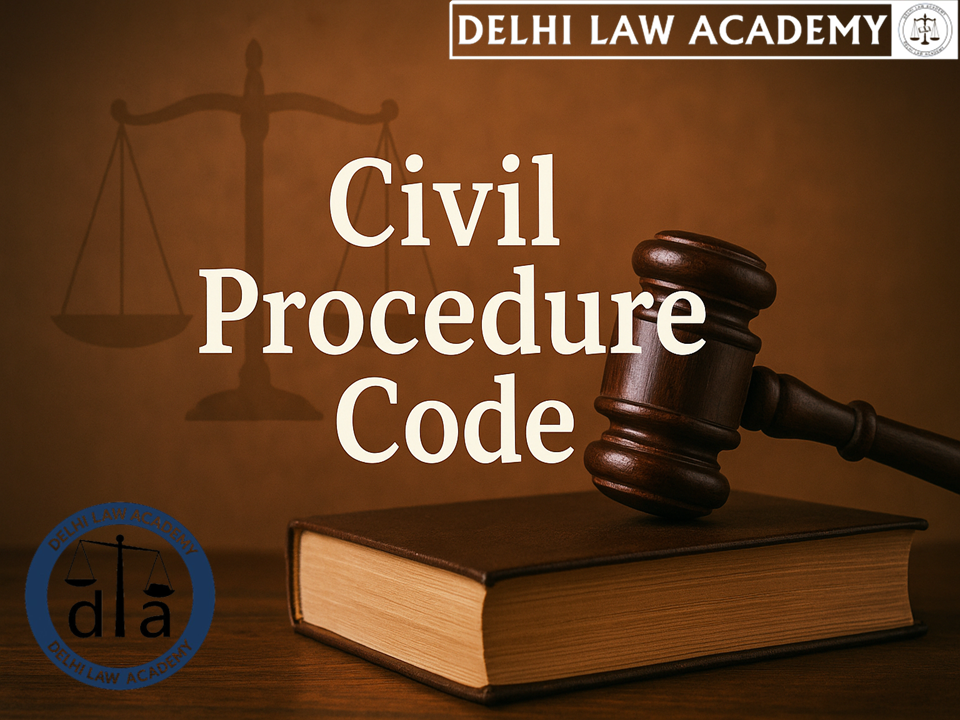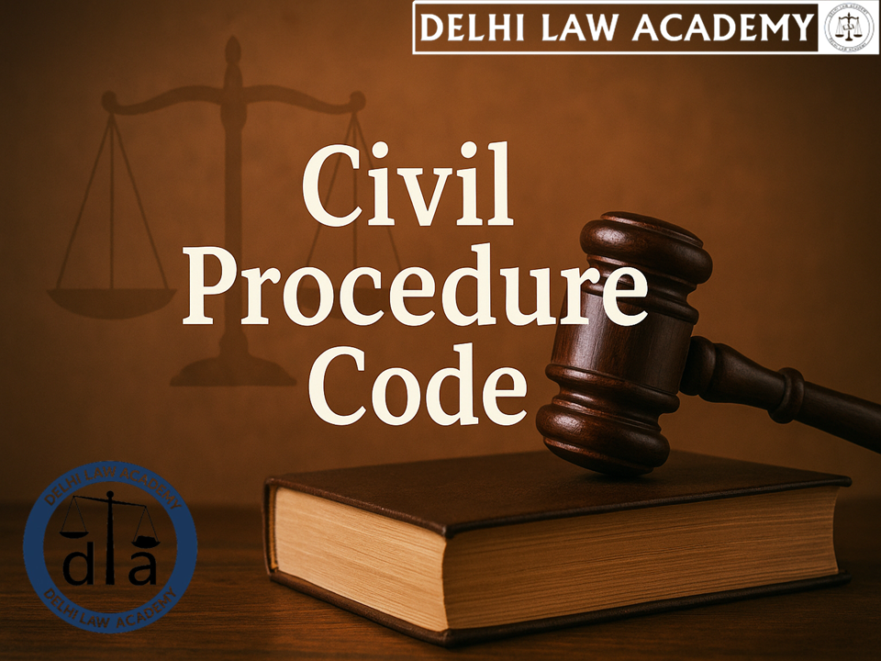
⚖️ Civil Procedure Code: Settlement of Disputes Outside Court (Section 89)
📌 Topics Covered
- Settlement of disputes outside Court
- Purpose and scope of Lok Adalats
- Interpretation of section 89: Two modifications required
- Whether the reference to ADR Process is mandatory
- For arbitration, there has to be an agreement
📚 Supreme Court Judgments Considered
- State of Punjab v. Jalour Singh [2008 SC]
- Afcons Infrastructure Ltd v. Cherian Varkey Construction
💡 Decision of the Supreme Court
• A Lok Adalat determines a reference on the basis of a compromise or settlement between the parties at its instance.
• Lok Adalats have no adjudicatory or judicial functions. Their functions relate purely to conciliation.
• After completion of pleadings, to consider recourse to ADR process u/s 89 is mandatory. But actual reference to an ADR process in all cases is not mandatory.
📖 Civil Procedure Code Explained
The Civil Procedure Code forms the bedrock of any and every Judicial Service exam in the country. Its thorough knowledge is a must for all aspirants of RJS, DJS, PCS (J) and every other Judicial Service exam. DELHI LAW ACADEMY JAIPUR has launched a series of study material modules covering all important aspects.
⚖️ Settlement of disputes outside Court (Section 89)
Section 89(1) [wef 1.7.2002]
- Where it appears to a Court that there exist elements of a settlement which may be acceptable to parties, the Court shall formulate terms of settlement and give them to the parties for their observations.
- After receiving observations, the Court may reformulate the terms of a possible settlement and may refer the same for:
- Arbitration
- Conciliation
- Judicial settlement including settlement through Lok Adalat
- Mediation
Section 89(2)
- Where a dispute is referred for arbitration or conciliation, provisions of Arbitration and Conciliation Act shall apply.
- Where a dispute is referred to Lok Adalat, Court shall refer the same to Lok Adalat as u/s 20(1) of Legal Services Authority Act 1987.
- Where a dispute is referred for judicial settlement, Court shall refer it to a suitable institution or person deemed to be a Lok Adalat.
- Where a dispute is referred for mediation, Court shall effect a compromise between parties following prescribed procedure.
- Lok Adalats have no adjudicatory functions; purely conciliation.
- A Lok Adalat determines a reference on the basis of a compromise and puts its seal of confirmation as an award.
- If no settlement is reached, case is returned to the Court for disposal according to law.
- The making of the award is merely administrative, incorporating terms agreed by parties.
Source: State of Punjab v. Jalour Singh [2008 SC]
🔍 Interpretation of Section 89: Two modifications required
- Proper interpretation requires two modifications from a plain reading:
- 1️⃣ Court need not formulate/reformulate terms before referring parties; a brief description of the dispute suffices.
- 2️⃣ Definitions of ‘judicial settlement’ and ‘mediation’ in section 89(2) must be interchanged.
- Clauses after interchange:
- (c) for “mediation”: court refers dispute to a suitable institution/person deemed to be Lok Adalat.
- (d) for “judicial settlement”: court effects compromise following prescribed procedure.
Authority: Afcons Infrastructure v. Cherian Varkey Construction [2010 SC]
❓ Whether the reference to ADR Process is mandatory?
- After pleadings, consideration of ADR u/s 89 is mandatory, but actual reference in all cases is not mandatory.
- Section 89 allows court to explain choices to parties; if no consensus, court chooses the process.
Authority: Afcons Infrastructure Ltd v. Cherian Varkey Construction
📚 Continue Your CPC Preparation
Don’t stop here! Strengthen your knowledge of the Civil Procedure Code with our other fully solved tests:
📘 Free Study Material for Judiciary Aspirants!
Download our FREE study material prepared by Delhi Law Academy’s expert faculty.
❓ Frequently Asked Questions: CPC – Actual Reasonable Costs
It means that the party who wins the case is entitled to have the costs of the suit paid by the losing party. If the Court decides otherwise, reasons must be stated in writing. Costs include actual reasonable expenses such as lawyer fees, travel, lodging, court fees, and time spent.
Under Section 35A, if a party raises a claim or defense that is false or vexatious and it is disallowed or withdrawn, the Court may order the offending party to pay costs as compensation to the other party. The maximum amount cannot exceed ₹3000 or the limits of the Court’s pecuniary jurisdiction.
Yes, Section 35B allows the Court to require a party causing delay (e.g., failing to take a step or obtaining an adjournment) to pay costs to reimburse the other party for expenses incurred on that date. Payment of such costs may be a condition precedent to continuing the suit or defense.
Actual reasonable costs include the successful party’s time spent, transportation, lodging, court fees, lawyer’s fees, typing charges, and other incidental costs related to the litigation, as clarified in Salem Advocates Bar Assn. v. Union of India [2005 SC].
Yes, Section 35(1) provides that costs are in the discretion of the Court. The Court decides by whom, out of what property, and to what extent such costs are payable. Section 35(2) ensures that reasons are recorded if costs are not awarded to follow the event.
Yes, Section 35A(2) limits compensatory costs to ₹3000 or the pecuniary jurisdiction of the Court, whichever is less. This prevents excessive penalties while ensuring accountability for vexatious litigation.
Contact us
📍 Delhi Law Academy – Jaipur Branch
6C, Tower 2, Coaching Hub, Pratap Nagar, Jaipur – 302033
📞 Phone:
+91 9911916552
+91 8447285606
✉️ Email:
contactus@delhilawacademy.com

